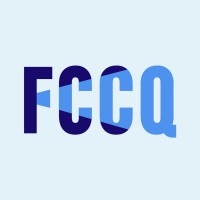
Formations de courte durée (COUD) — Requalification and skills enhancement
At a glance
- Up to 100% of project cost
- Unspecified
- All industries
- Quebec
- Non-profit
- Public or Parapublic institution
- For-profit business
- Non-financial cooperative
- All revenue ranges
- All organization sizes
- Rural or Northern Residents
- Employment and Training
- People with disabilities
- Rural / Remote communities
- Business owners / entrepreneurs
- Nonprofits / charities
- Academia / students
- All structures
- Local
- Regional
- Provincial
Overview
The Formations de courte durée (COUD) program offers up to 100% funding of eligible expenses to support companies in Quebec aiming to requalify and enhance the skills of their workforce through professional and technical training initiatives. Eligible activities include work-study programs tailored to meet recruitment challenges faced by businesses, excluding those in the fields of engineering, information technology, and childcare services.
Activities funded
- Delivery of professional or technical training programs that align with prioritized professions by Master Plan.
- Associations between collective sponsors and recognized educational institutions to create customized training programs.
Eligibility
- The company must be a private for-profit entity, a cooperative, or a non-profit organization.
- The company must partner with a collective promoter eligible for financial aid programs.
- The company's personnel must be released from their duties to participate in the training.
- The training projects must target professions within a labor market balance or deficit as per the "État d’équilibre du marché du travail" report or emerging professions without a diagnosis.
Who is eligible?
Eligible applicants for the Formations de courte durée (COUD) program include collective promoters who are recognized as eligible. These promoters can partner with recognized establishments under the Ministry of Education (MEQ) or the Ministry of Higher Education (MES) to implement professional or technical training. The program targets private for-profit businesses, cooperatives, and non-profit organizations that wish to enable their personnel to undertake such training. By collaborating with a collective promoter from their region or sector, businesses can allow their employees to participate in training projects tailored to address workforce recruitment challenges. Therefore, eligible applicants are collective promoters associating with licensed educational establishments and private enterprises, cooperatives, or non-profit organizations interested in these training opportunities.
Who is not eligible
- Projects linked to engineering and information technologies.
- Training for educational personnel in childcare services.
- Companies or entities whose training projects have started before the project's acceptance date.
Eligible expenses
- Salary of individuals undergoing training, up to $25 per hour, with a maximum of $25,000.
- Fees for trades experts, up to $150 per hour.
- Professional fees for consultants or training staff, capped at $150 per hour.
- Professional fees for accompanying staff and costs for adapting teaching materials according to the nature of disabilities.
- Salaries for teaching staff, covered by the MEQ and MES for DEP and ASP.
- Salaries for support staff assisting the success of the trainees.
- Salaries of staff assigned to integration and retention of new employees, up to $65 per hour.
- Costs related to the development or adaptation of pedagogical and didactic materials.
- Purchase of pedagogical and didactic materials.
- Registration fees for equivalency exams.
- Management and administrative expenses borne by the delegated organization or collective promoter, up to 10% of eligible expenses.
- Indirect expenses for training personnel and trainees, such as travel and meal costs, in accordance with the Treasury Board's directive.
- 50% reimbursement for costs related to the training of individuals supervising internships, including the cost of training and trainee salaries, up to $25 per hour.
Selection criteria
- Need for workforce based on diagnostics for 516 professions established by the ministère de l’Emploi et de la Solidarité sociale.
- Targeted profession within a sector prioritized by a government strategy.
- Prevalence of training dedicated to internships in companies.
- Training of internship supervisors.
- Diversification of projects.
- Focus on underrepresented groups in the labour market and projects north of the 49th parallel.
- Incorporation of literacy, numeracy, and digital literacy.
- Size of the organization.
- Defined cooperation strategy.
How to apply
Identify a collective promoter
- Consult the list of eligible collective promoters for financial aid programs to find a partner in your region or sector.
- Collaborate with the promoter to develop a training project tailored to the needs of your staff.
Preparation of the request
- Ensure that the project meets the eligibility criteria related to priority professions and the prioritization grid.
- Include details about the proposed training, such as workplace internships and the type of qualification sought (AEP, DEP, ASP, AEC).
- Gather the necessary documents, including the grant application form and the project budget.
Regional consultation
Submission of the request
- Prepare all the required documents for the application.
- Send the complete application by email to partenaires@mess.gouv.qc.ca.
Follow-up and confirmation
- Receive a confirmation of the request submission.
- Follow up on communications for any additional information or for missing items identified by the analysis service.
Additional information
- Promoteurs collectifs must work in collaboration with an educational institution recognized by the Ministry of Education (MEQ) or the Ministry of Higher Education (MES) to implement training programs.
- The financial assistance can cover up to 100% of eligible expenses that complement those covered by the MEQ, MES, or other aids from the Ministry of Employment and Social Solidarity.
- For reimbursement of overpayments made to the fund, multiple payment options are available including bank transfer, cheque, or credit card with specific instructions for each method.
- Collaborative efforts with the regional councils of labor market partners are essential before submitting a project application.
- The grant application can be sent via email, and the preferred mode of payment for refunds is bank transfer.
- Projects must integrate work-study models, offering training during work hours.
Contacts
Frequently Asked Questions about the Formations de courte durée (COUD) — Requalification and skills enhancement Program
What is the Formations de courte durée (COUD) — Requalification and skills enhancement?
How much funding can be received?
Who is eligible for the Formations de courte durée (COUD) — Requalification and skills enhancement program?
What expenses are eligible under Formations de courte durée (COUD) — Requalification and skills enhancement?
Who can I contact for more information about the Formations de courte durée (COUD) — Requalification and skills enhancement?
Where is the Formations de courte durée (COUD) — Requalification and skills enhancement available?
Is the Formations de courte durée (COUD) — Requalification and skills enhancement a grant, loan, or tax credit?
More programs like this

MAPAQ — Food Processing Program — Component 2
Ministry of Agriculture, Fisheries and Food (MAPAQ)
Development of E-Business Tax Credit (CDAE)
Investissement Québec (IQ)
Accueillez un stagiaire
Fédération des chambres de commerce du Québec (FCCQ)
Workforce Training Measure (MFOR)
Gouvernement du Québec
Program to support the development of agriculture and agri-food in the regions
Ministry of Agriculture, Fisheries and Food (MAPAQ)
Employee Wage Subsidy
Gouvernement du Québec
Employment Integration Program for Immigrants and Visible Minorities
Gouvernement du Québec
PAMT — Workplace Apprenticeship
Gouvernement du Québec
Concertation pour l’emploi — Human resources management support
Gouvernement du Québec